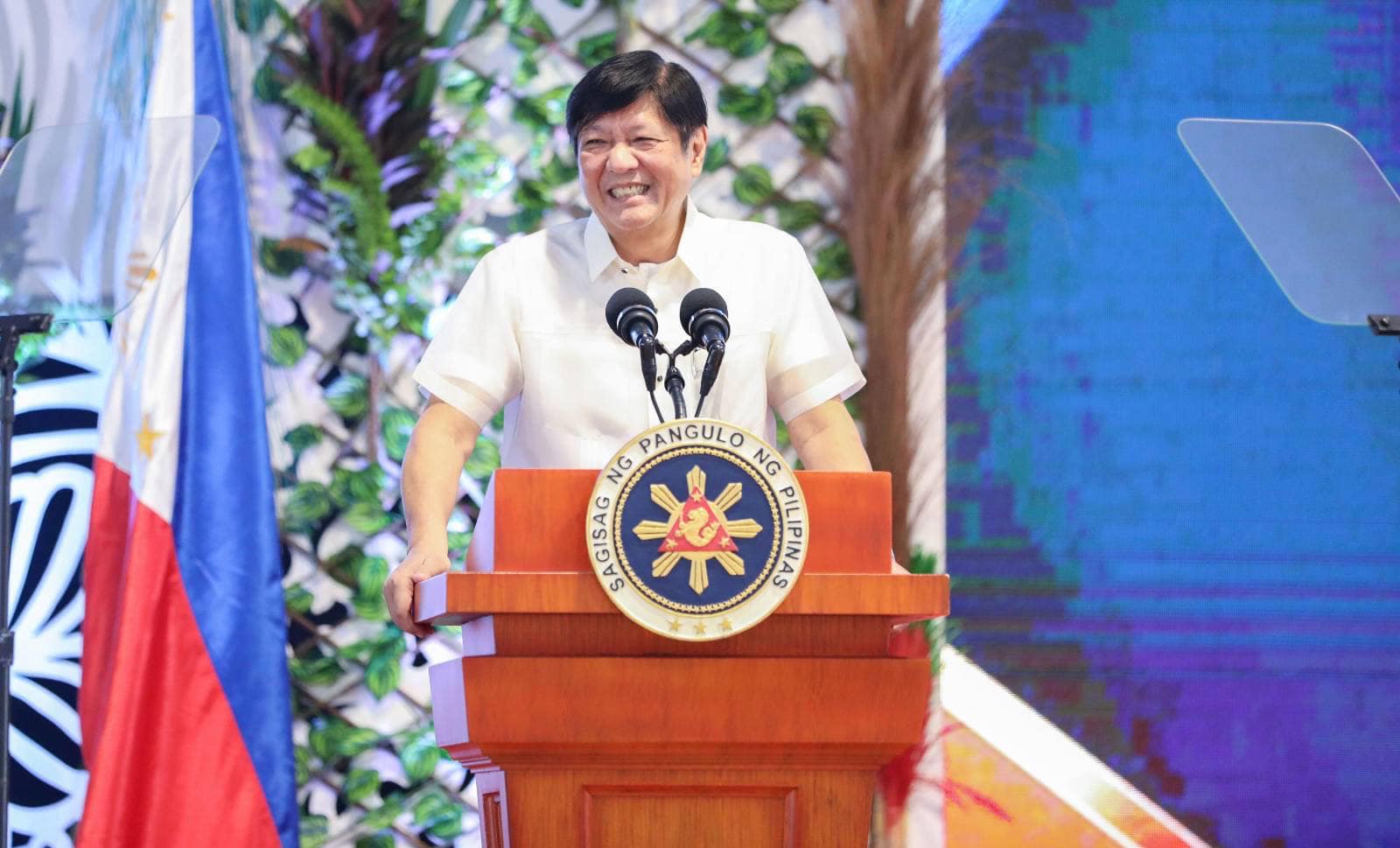
FILE PHOTO: President Ferdinand Marcos Jr. Image from Bongbong Marcos/Facebook
JAKARTA — President Ferdinand Marcos Jr. on Tuesday concluded his inaugural state visit here, bringing with him a slew of investment pledges from Indonesian businessmen and a commitment to enhanced economic and security cooperation from Indonesian President Joko Widodo, particularly in improving the country’s agriculture sector.
“I would describe the trip as more productive than we had expected,” a beaming Marcos told journalists who covered his three-day foreign travel.
“So far, so good,” he added. “The things that we planned to talk about with (Widodo)… and the subjects that we expected to be raised (were discussed). We even went beyond the planned (agenda).”
The President, who was accompanied by First Lady Lisa Araneta Marcos and their son, Ilocos Norte Rep. Sandro Marcos, was optimistic that Filipinos would benefit from the agreements that his delegation secured during his trip.
“President Widodo’s ministers were very enthusiastic about the (business) prospects in the Philippines and they see many opportunities. So we will pursue that,” he said.
“There were other areas that we did not plan to talk about, but we ended up talking about.”
The President did not mention anything about the case of Mary Jane Veloso, the convicted Filipino drug mule who has been on death row since 2010 after she was caught transporting heroin to Indonesia.
Last week, Veloso’s parents said she was “so sure” that they would be reunited soon as Marcos was scheduled to fly here for his first official function overseas as the Philippines’ 17th head of state.
READ: Mary Jane Veloso case prospects turn iffy in Marcos trip
It turned out, however, that saving Veloso was not included in the President’s mission.
Marcos, also the concurrent Agriculture Secretary, said he sought his Indonesian counterpart’s assistance in providing urea fertilizers for Filipino farmers and in addressing the problems besetting the fishing industry in the Philippines.
He said he was “obsessed” with the fact that the Philippines, an archipelago with one of the world’s longest coastlines, had to import galunggong (round scad), once known as the “poor man’s fish” for being inexpensive.
“I asked for help because they have a strong fisheries (industry). So I said we can exchange delegations,” the Chief Executive said.
His bilateral meeting with Widodo, held at the Bogor Presidential Palace on Monday, “proceeded so quickly” that they were able to agree on establishing task forces to close the agreements “at the technical level,” said the President.
“Generally, you don’t get to (that level) in a state visit,” he said.
“Usually, you only talk at the ministerial level or discuss within the groups. But (Widodo) said, ‘Let’s skip that. Let’s go straight already. Let’s get something done,’” he continued.
READ: Bongbong Marcos receives warm welcome from Filipino community in Indonesia — Palace
The President, who flew to Singapore before noon for the second leg of his state visits, said he also brought to Widodo’s attention the country’s need for coal, the major source of power in the Philippines.
Indonesia, the world’s biggest exporter of thermal coal, opted to suspend selling the fuel to other countries after its state-owned power utilities suffered low inventory levels for domestic use.
Added Marcos: “We (also) talked about renewable energies because coal is not seen as the most environmentally friendly fuel.”
Some of the deals that they sealed with Indonesia would be implemented “in the very short term,” according to the President.
Others, he said, were just “expansions to what are already ongoing. So that would be felt (by Filipinos) immediately. The others are quite long-term.”
In addition, the President said they spoke about the Regional Comprehensive Economic Partnership, an international trade agreement involving the member-states of the Association of Southeast Asian Nations (Asean), China, South Korea, Japan, Australia, and New Zealand.
Both the Philippines and Indonesia have yet to ratify the free trade deal, which some critics claimed would only adversely impact the agriculture sector in the Asean region.
“The Philippines’ ratification of RCEP… is going to be very high up on the order of business of the Senate after the (2023 national) budget is passed,” Marcos said.
He said he and his delegation, which included members of his economic team, had two separate meetings with Indonesian business groups on Monday.
According to the President, the “most extensive subject matter” of the meetings centered on public-private partnership (PPP) projects, a policy that the late President Benigno S. Aquino III employed to entice foreign and local investors to bankroll major infrastructure programs.
The discussions likewise tackled possible joint ventures not only between the Philippine government and the Indonesian businessmen but also between Filipino entrepreneurs and the Indonesian government, he said.
The Philippine delegation, he added, signed a memorandum of understanding (MOU) and letter of intent (LOI) with several prospective Indonesian investors.
“(The) MOUs and LOIs are only the beginning to these things. But we are determined that it will not end there,” he said.
RELATED STORY
Marcos leaves for Indonesia, Singapore